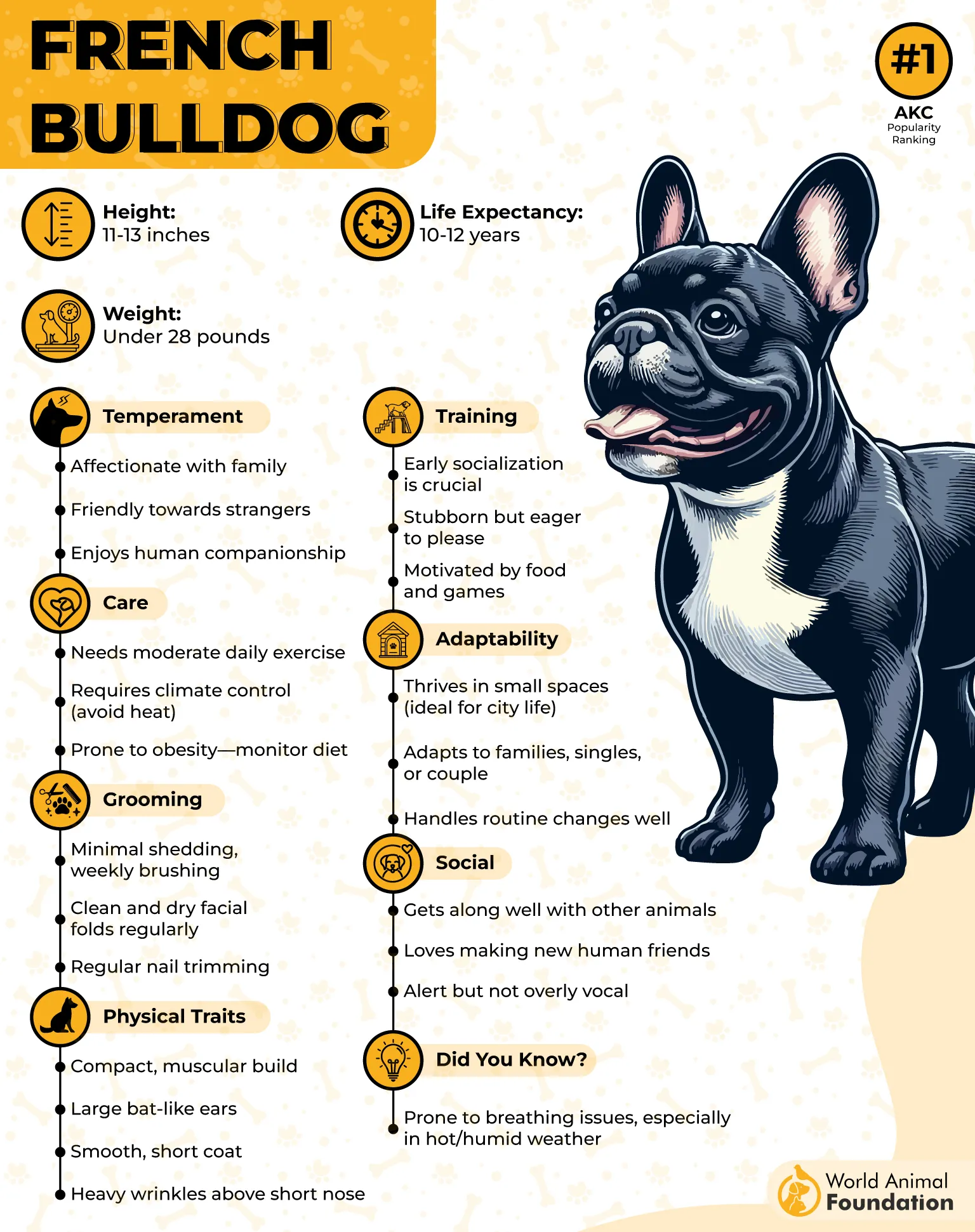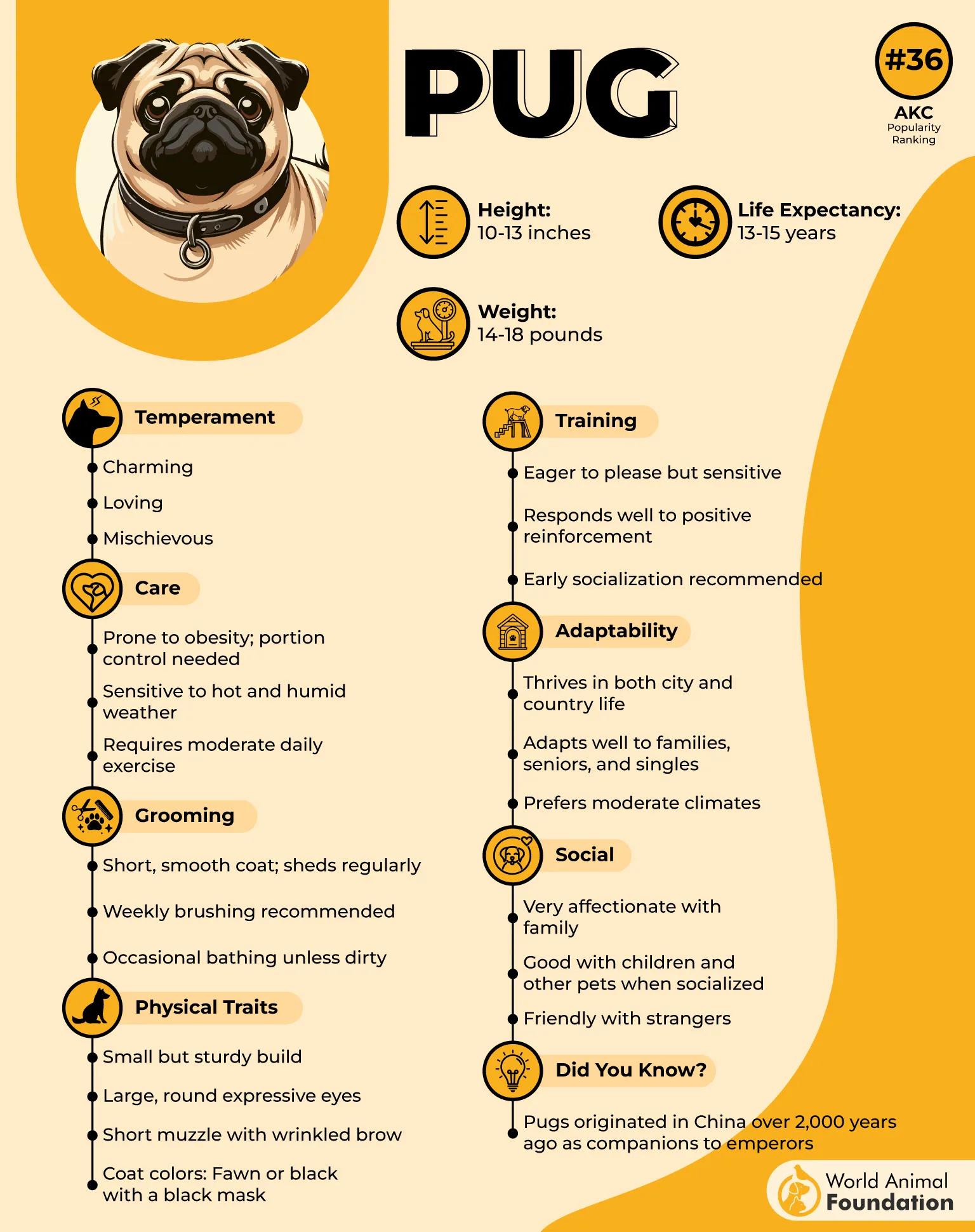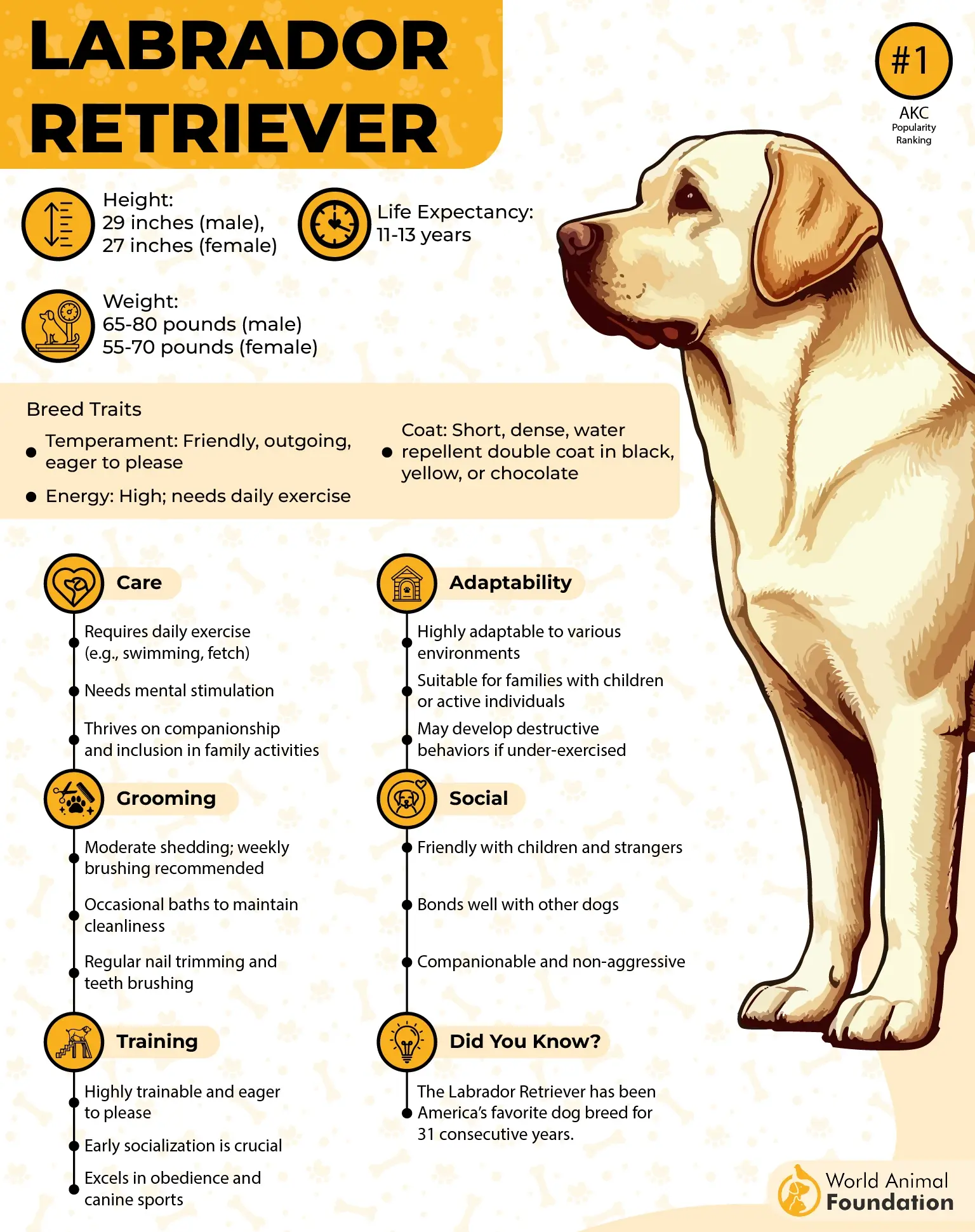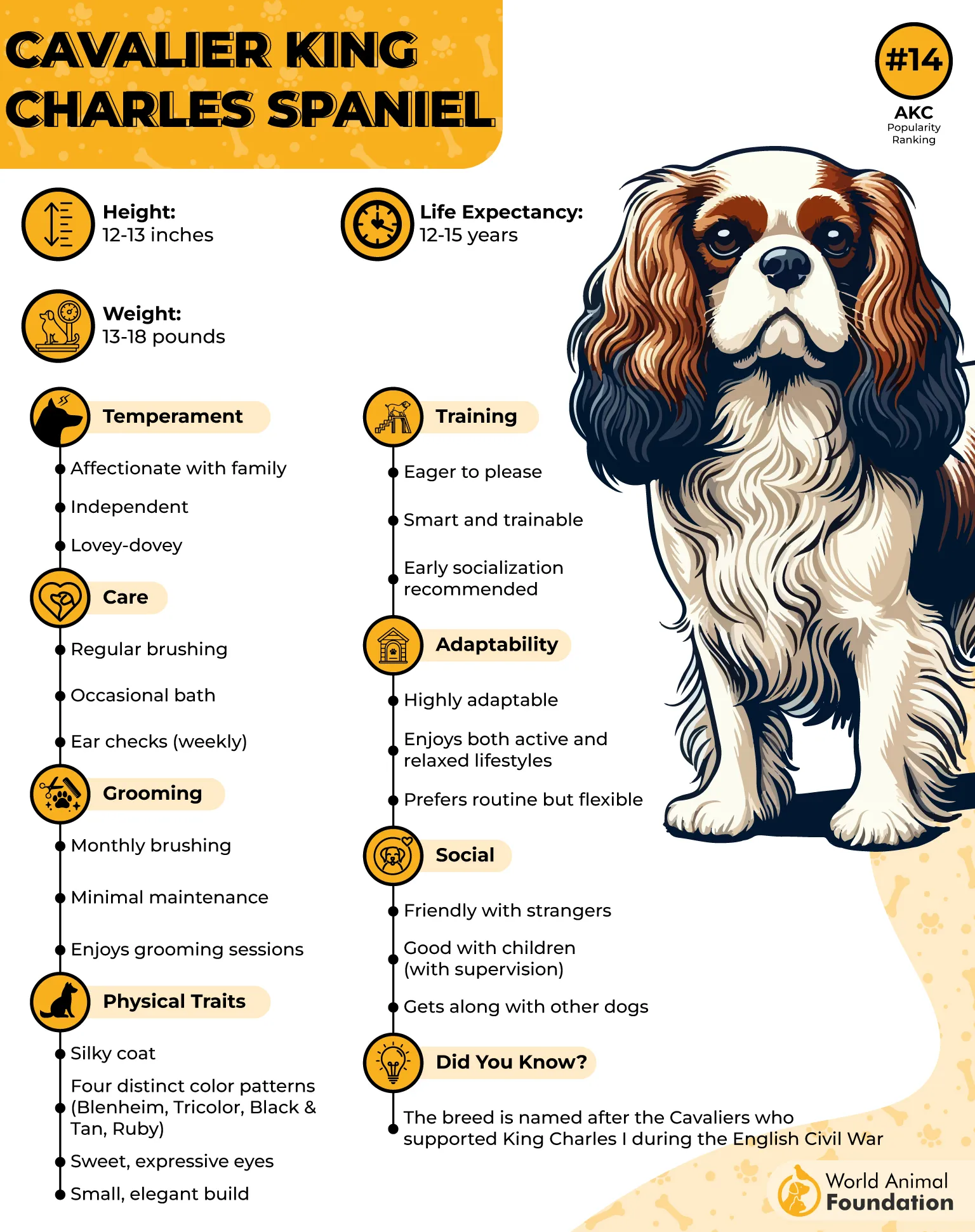Did you know that some of the world’s most popular dog breeds are also among the most vulnerable to serious health issues? Behind their charm, loyalty, and good looks, certain breeds carry genetic risks that can lead to heart disease, joint problems, or breathing difficulties.
While these dogs make incredible companions, understanding their health challenges helps owners give them the best possible care. Whether it’s a playful pup with hip concerns or a flat-faced favorite struggling to breathe easily, awareness is key to prevention.
Responsible breeding, regular vet checkups, and informed care can make a huge difference in keeping these beloved pets healthy and happy.
In this guide, we’ll explore seven popular dog breeds prone to serious health concerns, what makes them special, the conditions they face, and how you can help them live longer, fuller lives filled with love and tail wags.
Popular Dog Breeds Prone to Serious Health Concerns
1. French Bulldog

French Bulldogs are adored for their compact build and affectionate personality, but their popularity comes with serious health concerns. The breed’s flat face and narrow airways often lead to brachycephalic obstructive airway syndrome (BOAS), making it difficult for them to breathe, especially in hot weather.
According to the American Kennel Club (AKC), owners must monitor their activity levels and keep them cool to prevent respiratory distress.
Beyond breathing issues, French Bulldogs commonly experience spinal disorders, IVDD, and skin fold infections. Their short, stocky bodies and wrinkled skin make them prone to discomfort if not properly cared for. Regular cleaning and gentle exercise can help maintain their health and comfort.
Many Frenchies also struggle with allergies and digestive sensitivities. A balanced diet and frequent vet checkups are essential to managing these problems. Responsible breeding practices play a major role in reducing these inherited conditions.

Despite these concerns, French Bulldogs remain one of the world’s most popular dog breeds because of their loving, clownish personalities. Their emotional sensitivity and affectionate nature make them devoted companions for families and singles alike.
Pet experts emphasize that potential owners should understand the breed’s limitations and invest in proper care. With awareness and attention, many Frenchies can still live happy, healthy lives.
Fun Fact
French Bulldogs can’t swim due to their compact bodies and short noses, which makes it difficult for them to stay afloat—so always keep them away from deep water.
2. English Bulldog

The English Bulldog is instantly recognizable for its muscular build and iconic wrinkles, but it’s also one of the breeds most at risk for health issues. Studies published in Vet Times highlight that the breed’s structure contributes to chronic breathing problems and overheating. Their short muzzle and heavy chest make even mild exercise a challenge.
Skin and joint issues are common among Bulldogs. Folds in their skin can trap moisture, causing infections, while their stocky frame often leads to hip dysplasia and arthritis. Maintaining a healthy weight is crucial to minimizing strain on their joints.
English Bulldogs also face reproductive difficulties. Most require cesarean delivery due to the size of the puppies’ heads. Breeding responsibly and avoiding overbreeding is key to the breed’s welfare.
Despite these health struggles, Bulldogs are known for their calm, gentle disposition. They form strong emotional bonds with their families and are especially affectionate with children. Their loving nature often overshadows their physical challenges.
Owners must be vigilant about temperature control, diet, and regular vet visits. With proper attention, these endearing dogs can enjoy a comfortable, content life.
Fun Fact
The English Bulldog was originally bred for bull-baiting, a now-banned sport, but over time, selective breeding transformed them into the gentle, loyal companions we know today.
3. Pug

Pugs are famous for their adorable faces and loving temperaments, but their signature look comes at a cost. Research from the Royal Veterinary College shows that Pugs are almost twice as likely as other breeds to develop serious health issues, particularly those related to breathing and obesity. Their flat faces and short airways make them prone to chronic respiratory distress.
Beyond breathing challenges, Pugs often suffer from eye problems such as corneal ulcers and dry eye due to their prominent eyes. Their facial structure increases the risk of injury and irritation, making regular eye care essential.

Joint and skin issues are also common. Many Pugs experience hip dysplasia and skin fold dermatitis. Keeping them at a healthy weight through proper diet and moderate exercise can prevent further complications.

Despite these risks, Pugs have an irresistibly affectionate personality. They are loyal, playful, and known for forming deep emotional bonds with their families. Their sense of humor and charm make them beloved pets worldwide.
Owners must be cautious about overexertion in warm weather and watch for early signs of breathing distress. With careful attention, Pugs can live long, fulfilling lives full of love and cuddles.
Fun Fact
The Pug’s name is believed to come from the Latin word pugnus, meaning “fist,” because their wrinkled faces resemble a clenched fist.
4. German Shepherd

German Shepherds are renowned for their intelligence and versatility, but their powerful build makes them prone to several hereditary conditions. The most common concern is hip and elbow dysplasia, which can cause pain, arthritis, and mobility issues as they age. Early screening and joint-supportive diets can help reduce risks.
Digestive problems and allergies are also prevalent in the breed. German Shepherds may suffer from chronic diarrhea or skin irritation, often linked to food sensitivities. A consistent, balanced diet is essential for their digestive health.

This energetic breed is also at risk for degenerative myelopathy, a progressive spinal disease that can lead to paralysis. While incurable, physical therapy and proper care can slow its progression.
Despite these challenges, German Shepherds remain among the most popular dog breeds worldwide. Their intelligence, loyalty, and courage make them ideal working dogs and devoted family protectors.
Regular exercise, weight management, and veterinary checkups help maintain their quality of life. With attentive care, these noble dogs can continue to inspire admiration across generations.
Fun Fact
German Shepherds became famous after starring in early Hollywood films—most notably Rin Tin Tin, who helped make the breed a global favorite.
5. Golden Retriever

Golden Retrievers are one of the most beloved family dogs, but they’re also prone to a number of serious health conditions. The breed’s most concerning issue is cancer, particularly lymphoma and hemangiosarcoma, which studies show affects nearly half of all Golden Retrievers during their lifetime. Their genetic predisposition makes regular vet checkups and early detection vital.
Hip and elbow dysplasia are also frequent concerns. These joint issues can cause pain and reduced mobility as the dog ages. A balanced diet, weight management, and proper exercise are key to reducing stress on their joints.

Golden Retrievers often suffer from heart disease, most commonly subvalvular aortic stenosis, a narrowing of the heart’s valve that can limit blood flow. Routine heart monitoring can help identify symptoms before they progress.
Skin and ear infections are also common due to their thick coats and love for swimming. Keeping their fur dry and clean helps prevent chronic irritation and bacterial growth.
Despite their health risks, Goldens are gentle, loyal, and intelligent companions. Their affectionate nature and patience make them excellent family pets and therapy dogs.
Fun Fact
Golden Retrievers are so eager to please that they were among the first breeds trained as guide dogs for the visually impaired.
6. Labrador Retriever

Labrador Retrievers are known for their cheerful personalities and loyalty, but they face several genetic health risks. Obesity is one of the most common problems in this breed, and it can lead to diabetes, arthritis, and heart disease. Owners must manage food portions carefully and prioritize regular exercise to maintain a healthy weight.
Joint issues such as hip and elbow dysplasia are also widespread. These conditions can cause chronic pain and mobility issues, especially as Labradors age. Early screening and joint supplements are often recommended to reduce long-term effects.

Another serious concern for Labradors is progressive retinal atrophy, a degenerative eye disease that can lead to blindness. Regular eye exams help catch early signs of deterioration.
Ear infections are frequent due to their floppy ears and love for water. Keeping ears dry and clean is essential to prevent bacteria and yeast buildup.
While Labradors are prone to certain conditions, their adaptability, intelligence, and loving temperament continue to make them one of the world’s most popular dog breeds.
Fun Fact
Labrador Retrievers have been America’s most popular dog breed for over 30 years, thanks to their intelligence and affectionate nature.
7. Cavalier King Charles Spaniel

The Cavalier King Charles Spaniel’s loving and gentle nature hides a troubling reality. Being a brachycephalic dog breed, this breed faces some of the most serious hereditary health concerns in the dog world.
The most common is mitral valve disease, a heart condition that can lead to heart failure. As per PETA, studies suggest nearly all Cavaliers develop this issue to some degree in their lifetime.
Another major concern is syringomyelia, a neurological disorder caused by skull malformation that leads to spinal fluid buildup and intense pain. Owners may notice symptoms such as scratching, yelping, or sensitivity around the neck and shoulders.

Cavaliers are also prone to hip dysplasia, Intervertebral disc disease, and ear infections due to their long, silky coats and floppy ears. Regular grooming and vet visits are essential for early detection and prevention.
Despite these vulnerabilities, Cavaliers remain affectionate and adaptable companions. Their calm temperament and eagerness to please make them excellent therapy dogs and family pets.
Animal welfare organizations urge potential owners to adopt from reputable breeders or rescues to help reduce the spread of genetic diseases within the breed.
Fun Fact
The Cavalier King Charles Spaniel was named after King Charles II of England, who was so fond of them that he allowed the breed in royal chambers—an honor no other dog had.
FAQs
Why do some beloved dog breeds face chronic health issues despite their popularity?
Many purebred dogs have breed-specific health problems due to selective breeding for appearance or temperament. These genetic traits can increase the risk of common health concerns like spinal problems, kidney disease, or gum disease over time.
How can prospective dog owners spot early warning signs of serious health concerns in popular breeds?
Watch for changes in mobility, appetite, breathing, or behavior. Regular vet checkups, early diagnosis, and parasite prevention can catch life-threatening conditions before they worsen.
What preventive care strategies are most effective for high-risk dog breeds?
A healthy diet, proper nutrition, and routine dental care are essential. Pet parents should schedule routine checkups, maintain good hygiene for the dog’s teeth and skin, and consider pet insurance or prescription diet plans for added protection.
Conclusion
Understanding breed-specific health issues is vital for keeping dogs healthy and happy. Many purebred dogs are prone to common health problems like skin infections, urinary tract infections, or dental diseases such as periodontal disease. With regular vet check-ups, preventive measures, and proper nutrition, pet parents can reduce the risk of breed-related health conditions and support long-term wellness.
Investing in the best pet insurance plans and regular monitoring are valuable tools for covering unexpected dog health issues, especially for senior dogs and flat-faced breeds. Advances in veterinary medicine and dog insurance have made managing breed-specific health problems easier than ever.
Other dog breeds such as the Boston Terriers, Cocker Spaniel, Yorkshire Terriers, and Australian Cattle Dog, and some mixed breed dogs also face common health concerns—but with early diagnosis and consistent care, every dog can enjoy a healthier, more active life.


